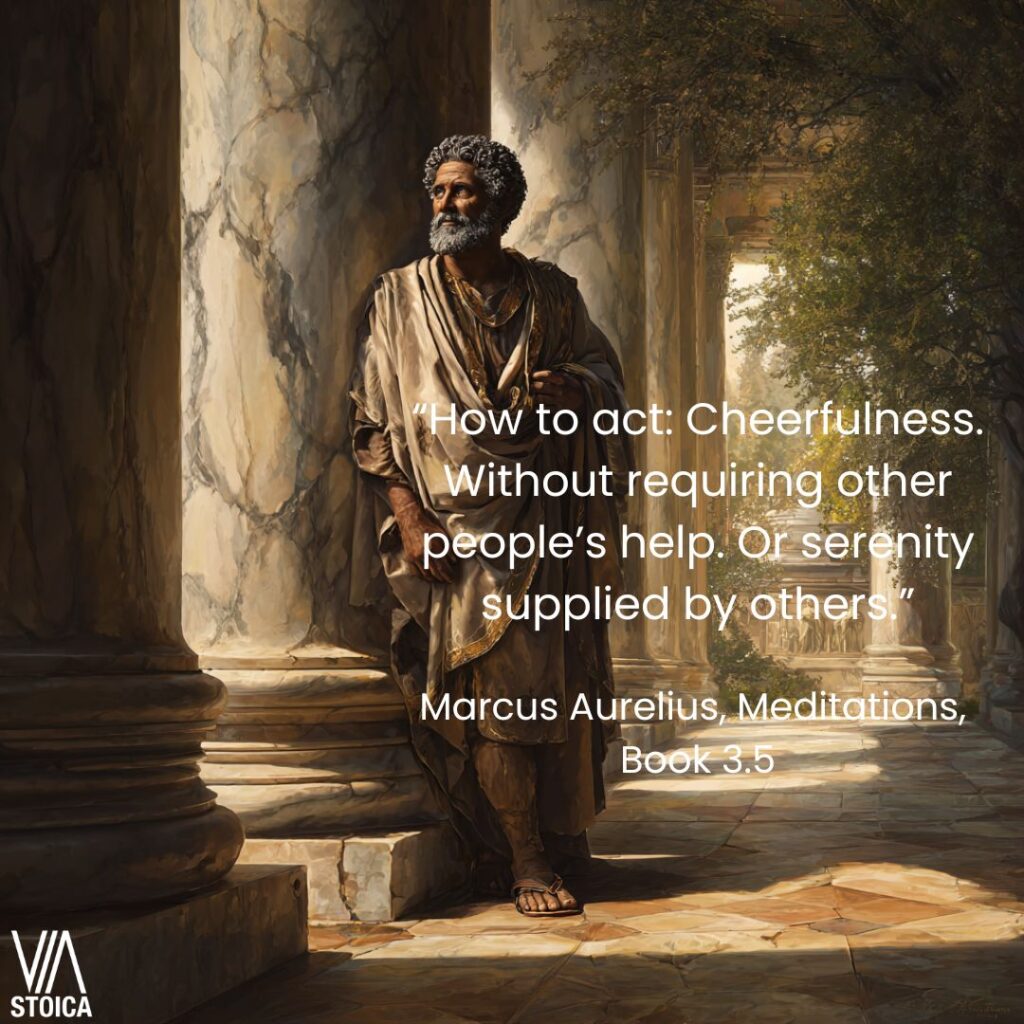“How to act: Cheerfulness. Without requiring other people’s help. Or serenity supplied by others.”
Marcus Aurelius, Meditations, Book 3.5

Cheerfulness may not be the first word that comes to mind when we think of Stoicism. Many assume Stoicism is all about sternness or detachment, but Marcus Aurelius points us in another direction. For him, the mark of a strong person is to carry cheerfulness within, without depending on others to supply it.
This insight is timeless. In our modern world, we often tie our moods to how others treat us: a smile from a stranger, approval from a boss, affection from a partner. While these are valuable, Marcus reminds us that serenity sourced from outside is fragile. True Stoic cheerfulness comes from cultivating an inner state that cannot be taken away.
Practical reflections or insights
- Build self-sufficiency of mood
Instead of waiting for circumstances to dictate your happiness, practice beginning each day by affirming what is within your control. This aligns with the Stoic practice of the discipline of desire, seeking good only in virtue, not in external approval. - Practice cheerful resilience
When challenges arise, test yourself by choosing a posture of calm acceptance. A light spirit in difficult times is not denial, but strength. It signals that your peace is not hostage to events. - Share, but do not depend
Cheerfulness can be offered generously to others, but not demanded from them. The Stoic ideal is to be a source of stability in relationships, rather than relying on others to regulate our inner state.
The lesson of Stoic cheerfulness is not to withdraw from people, but to stand on solid ground within yourself so that when you do connect with others, it is from gratitude, not need.
FAQ
What does Stoicism say about cheerfulness?
Stoicism teaches that true cheerfulness comes from within, rooted in virtue and reason, not in external circumstances or other people’s moods.
Can Stoicism make you happier in relationships?
Yes. By practicing Stoic cheerfulness, you bring calm and stability to your relationships, relying less on others for validation and more on your inner alignment with virtue.
How can I practice Stoic cheerfulness daily?
Start with morning reflections, remind yourself of what is in your control, and respond to challenges with lightness instead of frustration.
Want to explore more Stoic strategies?
Book a free consultation with one of our Stoic Coaches or read more on the Marcus Aurelius Quotes page. You can also listen to the Via Stoica podcast on Spotify or Apple Podcasts or watch it on YouTube.


0 Comments